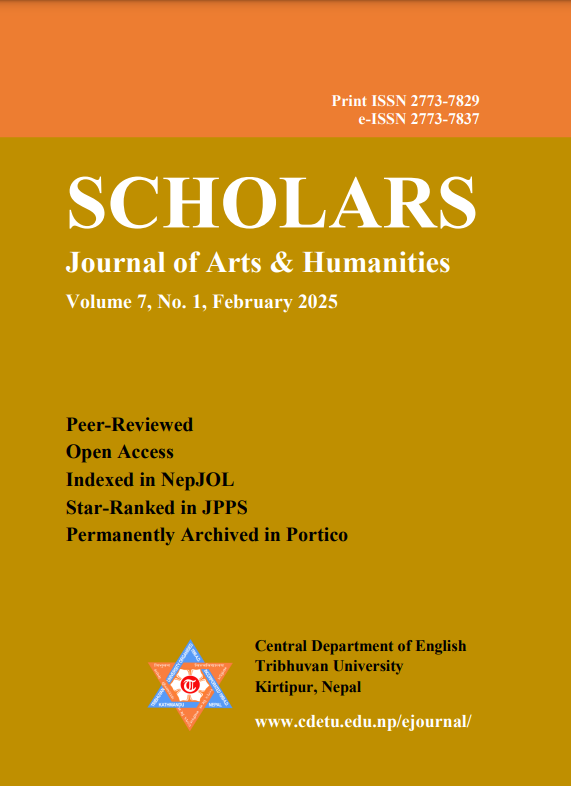Bangladeshi Transgenders as Other: A Postcolonial Critique of the Film Common Gender
DOI:
https://doi.org/10.3126/sjah.v7i1.75683Keywords:
Postcolonialism, colonizer, colonized, Eurocentrism, subaltern, transgenderAbstract
Common Gender, a Bangladeshi film of the year 2012, explores the Bangladeshi society which dominates the lives of the transgenders where the latter is always marginalized by the prior powerful class. It is also seen that androgyny people are mistreated not only by their father, siblings, females, and lovers, but also by their mothers. Thus, Hijras are suppressed by the Bangladeshi society which considers them as Other. As postcolonialism focuses on the powerful colonizers who subjugate, beat, and brutally destroy the identity of the subaltern colonized, this movie is discussed in the light of this theory. Both postcolonialism and the film deal with the same themes, but no research has been conducted yet to examine this film which depicts the dehumanization of the subjugated Hijras under the lens of postcolonialism. Transgenders are the colonized subaltern class controlled by the colonizer (our society). Therefore, this qualitative paper attempts to study and connect with the concepts like colonizer, colonized, subaltern, occident, and eurocentrism which are pivotal aspects of postcolonialism. As a result, this research locates the similarities as well as differences between the heterosexual individuals of Bangladesh and the colonizers. It also connects the deprived transgenders with the colonized to trace the meeting and departure points of transgenders and the African colonized. In this way, it analyzes the film from the perspective of postcolonial theory.
Downloads
Downloads
Published
How to Cite
Issue
Section
License

This work is licensed under a Creative Commons Attribution 4.0 International License.
© Central Department of English, Tribhuvan University and Authors




